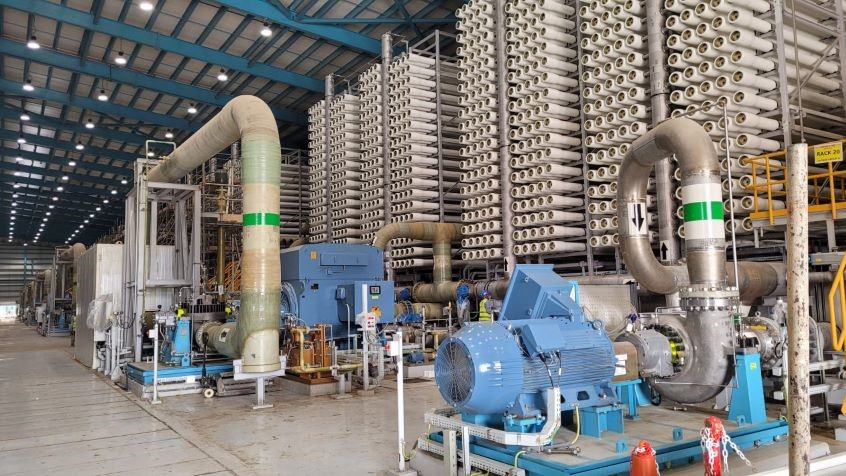Built on the western coast of the red sea, the Rabigh 3 is the world’s largest seawater desalination plant. The plant, which uses reverse osmosis technology, has a production capacity of 600000 m3 per day. This is enough to supply desalinated water to around three million people across one million households in Makkah, Al-Mokarramah, Jeddah and Mastorah. To support the plant’s operations, motor manufacturer WEG supplied a specialised package of motors and drives.
The plant is not just the largest in the world, it has been referred to as the most environmentally friendly desalination plant of its kind. It has been noted for being an example of efficiency and sustainability in both its design, construction and operational processes. It uses reverse osmosis technology to reduce the salt content of saline water to a drinkable level, a more energy efficiency process than traditional thermal desalination. Rabigh 3 has the lowest energy consumption during its day-to-day operations, allowing increased plant availability, and the lowest noise rate.
The global water industry must meet huge demands for drinkable water worldwide, and desalination and treatment plants require reliable and efficient equipment to support their operations. The plant required motors and drives for use in key processes within the water production chain, from water capture, pre and post-treatment and reverse osmosis.
The contract for engineering, procurement and construction (EPC) of the plant was awarded to consortium of Abengoa, SIDEM and SEPCO III. WEG was the ideal supplier for motor and variable frequency drive solutions for an operation of this scale. With years of technical expertise and experience from working on a range of projects with large engineering companies, WEG was able to supply a package tailored to efficiently and reliably support Rabigh 3. The products supplied included 69 electric motors and 50 medium voltage frequency drives able to handle the significant amounts of water processed by the plant daily.
Global water requirements are constantly growing, and to provide the population with safe and clean water, innovative solutions and sophisticated infrastructure is essential. WEG’s support was key in the success of the Rabigh 3 project, and will continue to be integral in providing drinkable water to millions on the western coast in Saudi Arabia.



